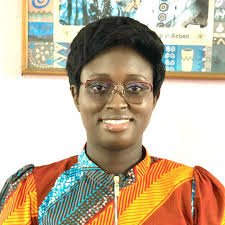A stakeholder workshop to review the second edition of the Ghana National Action Plan (GHANAP 2) on Women, Peace and Security was on Tuesday held in Accra.It was organised by the Women, Youth, Peace and Security Institute (WYPSI) of the Kofi Annan International Peacekeeping Training Centre (KAIPTC) with government agencies, civil society organisations, and development partners in attendance to assess progress made and propose ways forward.In her address, Mrs Vera Karikari Bediako from the Ministry of Gender, Children and Social Protection said a Technical Working Group had been set up to lead the implementation and monitoring of the action plan.She said the group had been trained on the African Union Continental Results Framework to improve Ghana's reporting obligations.She added that with support from UNFPA, the Ministry had established the Orange Support Centre to provide 24-hour services for survivors of sexual and gender-based violence, including counselling, legal, and medical support.Mrs Bediako also announced the setting up of response centres in some markets across the country to offer paralegal and referral services.She emphasised the need for stronger partnerships to ensure women's full participation in peace and decision-making processes, stating that peace agreements with women's involvement tend to last longer and are more effective.On the Bawku conflict, Madam Joana Opare of the National Peace Council spoke about the impact of conflict on women.
She stressed that while men might die in conflicts, women were left with the burden of caring for families and managing households, which becomes nearly impossible in war situations.She highlighted the importance of UN Security Council Resolution 1325, passed in 2000, which calls for increased participation of women in peace building efforts."Ghana developed its first national action plan in 2012 and the second in 2017, which is ending this year, we must now evaluate the progress, challenges, and emerging issues to inform the next plan," she said.Ms Sylvia Horname Noagbesenu, Acting Director of WYPSI at KAIPTC, said the workshop would allow for reflection and review of GHANAP 2 and help shape a more targeted and effective third national action plan.She noted that since the adoption of UN Resolution 1325, Ghana had shown commitment to integrating gender perspectives in national security and peace processes.She called for evidence-based and inclusive strategies to address current and future peace and security challenges, especially as the country prepared for its third action plan.Speaking on behalf of FOSDA, Ms Dorothy Barnes, disclosed that their independent monitoring of GHANAP 2 showed that Ghana had achieved only about 20.84 per cent of its implementation targets among six major institutions.She said phase two of the monitoring process was underway, involving more organisations including local government and civil society actors.She stressed that the action plan must serve everyone and urged all stakeholders to document progress and challenges to ensure transparency and improvement.Ms Barnes said the goal of the action plan was to build inclusive societies where women and girls could thrive.She encouraged all stakeholders to take lessons from the challenges of the past to improve implementation in the future. BY AGNES OPOKUSARPONG

